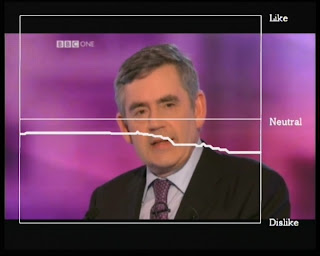One thing that has always annoyed me about politics is how in the run up to an election, politicians will say they're going to do something, then when they get into power they do the exact opposite of what they said they were going to do.
People have come to expect this from their governments and accept as inevitable that the party they may have voted for, based on the policies outlined in the weeks and months prior to the election, are going to renege on some of them or simply not be able to fulfill others as they had planned.
Although it's not ideally what you as a voter would want to happen and while it may be frustrating or disappointing that a policy you agreed with hasn't been implemented, politics is doubtlessly a complex beast and as a result it is certainly conceivable that unforeseen circumstances can get in the way of following through on things so accepting this is understandable.
However, this misses the point of my original grievance which was not about politicians not doing what they said they would do but rather them going out and doing the exact opposite instead. This I feel is totally unacceptable and any cases of it happening should surely result in the election being rendered invalid as the people that voted for that policy have got the exact opposite of what they voted for and may very well have not voted for that party had it not been for being misled in this way.
In the run up to the 2010 UK general election, David Cameron and the Conservative party said they would be the "Greenest government ever" before getting into power, after which they abolished schemes for producing green energy and for making homes more energy efficient. They stated that they would not interfere with the NHS. Yet almost immediately after the election they pushed ahead with the NHS reforms bill, ignoring all professional advice along the way with an astonishing level of arrogance and determination even by cliché Tory standards.
Saying you'll do something to get people to vote for you and then doing the opposite of that after you've got their vote is fraudulent misrepresentation and basically cheating to win an election (albeit in a more subtle way than Putin managed).
Some like to advertise their lies
Again people are generally accepting of this too, it's the general consensus that politicians lie and there's little else you can base your vote on beyond what they say they will do. So it seems this is the best we can hope for; this is what we're stuck with and there's nothing more that could be done.
Except of course I have a solution. I propose we use lie detectors on our politicians when they are telling us what they would do for us if we vote for them. I'm not talking about having them sitting in a chair under interrogation with beeps and buzzers going off after every statement. After hooking up the politician in question (as standard) the lie detector would simply work silently in the background and we could analyse the results afterwards.
A disenfranchised spray can writes...
The reason for this is that their results are not accepted as evidence in UK courts, or US courts for that matter, where lie detectors are still commonly used in police investigations to at least home in on a suspect if he fails the test.
However, an analysis of seven field studies involving specific incidents, in a 2003 report from the National Academy of Sciences, showed lie detectors to have a median accuracy of 89 percent.
89 percent accuracy is not to be sniffed at and while I'd certainly advocate further development and much higher accuracy before such tests can be submitted as evidence in criminal cases, I think the current level of accuracy is fit for the purpose of helping us judge whether a politician is lying to us or not.
For anyone who watched the live televised debates in the run up to the 2010 UK election, you may remember, in the analysis that followed each debate, a thing they called "the worm". The worm was a wiggly line moving across the screen that was controlled by the studio audience. Whenever the audience liked what they heard from one of the party leaders, they pressed a button which made the worm go up, and whenever they didn't like what they heard, another button would make the worm go down. Now, of course, saying something like "I want to put more money back in the pockets of hard working people" would make the worm go up, but what if the audience also had access to a live lie detector test that was hooked up to the candidates? Then if "I want to put more money back in the pockets of hardworking people" was presented to you alongside the fact there is a 9 in 10 chance that the statement is untrue, you're less likely to like what you've just heard.
"Dislike"
Of course the biggest problem with this is the politicians themselves; they would never agree to it. But why not? When Lance Armstrong refused to contest doping charges last week, his guilt was therefore assumed and he was stripped of his Tour de France titles. Perhaps any politician refusing the lie detector should be treated in the same way. That'd weed out the liars and probably also create a mass of vacancies at Westminster.




No comments:
Post a Comment